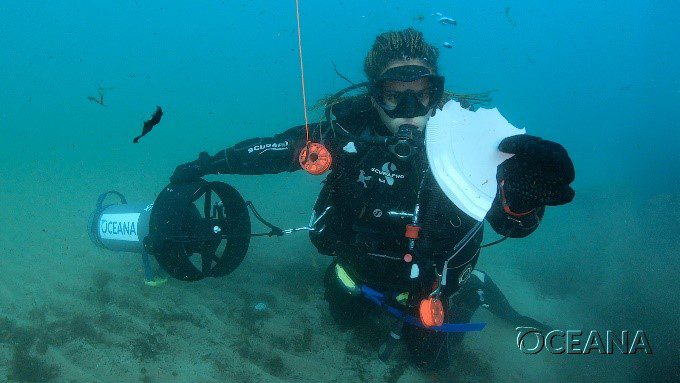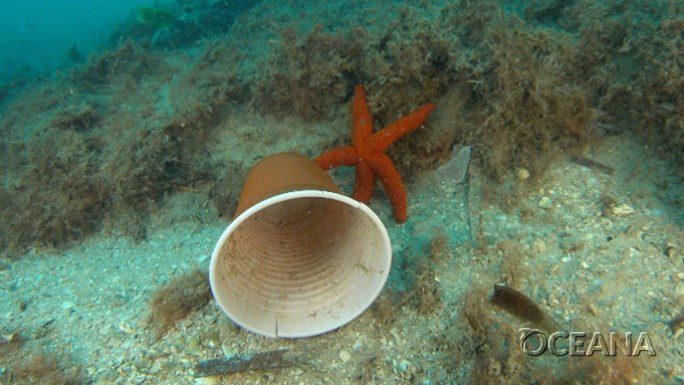Oceana finds plastics in all marine habitats analysed in Valencia and Mallorca in low season
UA new report shows the need to take advantage of the Spanish Waste Law and the Royal Decree on Packaging to reduce single-use plastics as much as possible
Press Release Date: December 7, 2021
Location:
Contact:
Irene Campmany | email: icampmany@oceana.org | tel.: +34 682 622 245
|
Oceana scientists and divers have found plastics in all the underwater ecosystems they analysed in the low-season in two of the Spanish coastal areas most popular with tourists, Valencia and Mallorca, as stated in the latest report by the organisation. In total these represent a dozen biodiversity-rich sites that combine different types of habitats, including coral zones, sandy bottoms, and kelp forests[1]. In light of the findings, Oceana is calling on the Spanish parliament to take ambitious measures to eliminate single-use plastics through the Waste Law. It also calls for reuse targets in the Royal Decree on Packaging, which is currently being prepared by the Ministry for Ecological Transition. “The results of our expeditions in two of the most popular tourist spots in the Spanish Mediterranean are striking. There is an urgent need to drastically reduce the production and use of single-use plastics. This rubbish is suffocating the seas and the species that inhabit them. The scale of the problem requires far-reaching legislative measures and policies to match expectations, as well as a clear commitment to reuse and reduce. The targets outlined in the drafts of the Waste Law and the Royal Decree on Packaging are neither binding nor ambitious enough”, explains Natividad Sanchez, the director of the plastics campaign at Oceana in Europe. The items most found by Oceana experts are disposable plastics, including bags, wrappings, beverage containers, food containers, and fishing equipment, among others. In fact, the organisation has filmed various endangered species in areas contaminated by plastics, situations that carry a high risk of fauna ingesting plastic fragments, these becoming incorporated into the ecosystems, or wildlife becoming entangled in this waste. The organisation argues that the solution is for regional authorities and the Spanish government to tackle plastic pollution more efficiently by changing the throwaway culture, which focuses exclusively on the collection of waste once it has been discarded, to a policy that encourages reusable alternatives and avoids the generation of waste in the first place. The Spanish government now has the opportunity to go a step further and ambitiously implement the European Single-Use Plastics Directive through the pending Waste and Contaminated Soil Law, which will be responsible for preventing and managing waste at the national level. In the coming months, a Royal Decree will also be enacted with the aim of providing legislation on single-use plastic packaging. Oceana’s key recommendations include:
|
[1] The underwater surveys were conducted in autumn, after the tourist season and, in the case of Valencia, during the COVID-19 pandemic. Despite this, large quantities of plastic waste were found in every habitat type documented, giving us a glimpse of the magnitude of the problem.
.
 |
 |
| Oceana diver holding a piece of plastic at the bottom of the sea in Valencia. | Red starfish and plastic cup on the seabed in Mallorca. |

